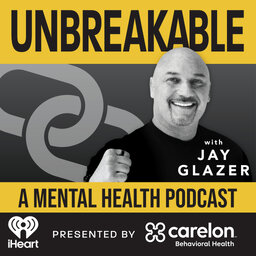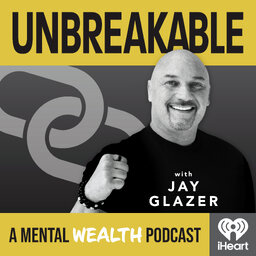Unbreakable Episode 113 - Dennis Allen
Welcome to Unbreakable! A mental wealth podcast hosted by Fox NFL Insider Jay Glazer. This is a very difficult week for many people in the NFL. It is the week where coaches lose their jobs, there is a lot of turnovers, and there is NO guidebook for it. But there is a man who lived it, Denis Allen. The former head coach of the New Orleans Saints joins Jay for an incredible chat. Dennis shares his stories, knowledge and experiences that will absolutely be led to helping others deal during difficult times.
Follow, rate & review Unbreakable with Jay Glazer here!
https://link.chtbl.com/unbreakablewithjayglazer
#fsr
In 3 playlist(s)
Unbreakable with Jay Glazer: A Mental Wealth Podcast
In this new podcast, which is an extension of his widely-acclaimed, best-selling book “Unbreakable,”…Social links
Follow podcast
Recent clips

Unbreakable Episode 135 - Darren Waller
25:30

Unbreakable Episode 134 - Bret Michaels
32:04

Unbreakable Episode 133 - Mike Swick
37:34
 Unbreakable with Jay Glazer: A Mental Wealth Podcast
Unbreakable with Jay Glazer: A Mental Wealth Podcast

